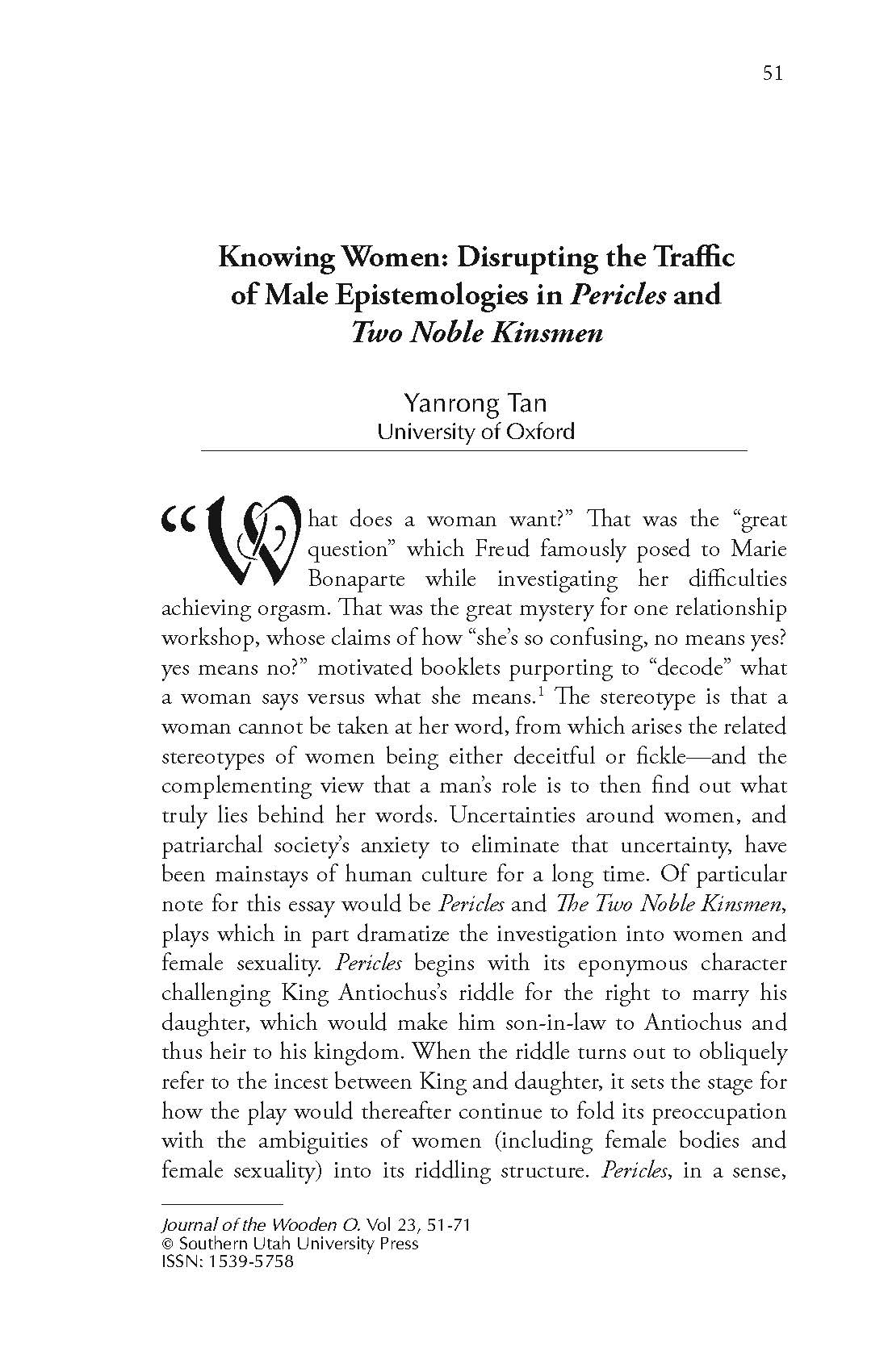Knowing Women Disrupting the Traffic of Male Epistemologies in Pericles and Two Noble Kinsmen
Main Article Content
Abstract
“What does a woman want?” That was the “great question” which Freud famously posed to Marie Bonaparte while investigating her difficulties achieving orgasm. That was the great mystery for one relationship workshop, whose claims of how “she’s so confusing, no means yes? yes means no?” motivated booklets purporting to “decode” what a woman says versus what she means.1 The stereotype is that a woman cannot be taken at her word, from which arises the related stereotypes of women being either deceitful or fickle—and the complementing view that a man’s role is to then find out what truly lies behind her words. Uncertainties around women, and patriarchal society’s anxiety to eliminate that uncertainty, have been mainstays of human culture for a long time. Of particular note for this essay would be Pericles and The Two Noble Kinsmen, plays which in part dramatize the investigation into women and female sexuality. Pericles begins with its eponymous character challenging King Antiochus’s riddle for the right to marry his daughter, which would make him son-in-law to Antiochus and thus heir to his kingdom. When the riddle turns out to obliquely refer to the incest between King and daughter, it sets the stage for how the play would thereafter continue to fold its preoccupation with the ambiguities of women (including female bodies and female sexuality) into its riddling structure. Pericles, in a sense, makes woman a riddle to be solved. The riddle that Kinsmen takes up, meanwhile, is that of whom the heroine Emilia would prefer to marry, between the titular Arcite and Palamon, who must then fight to marry her and to be recognised by her kingly brother-in-law Theseus.
